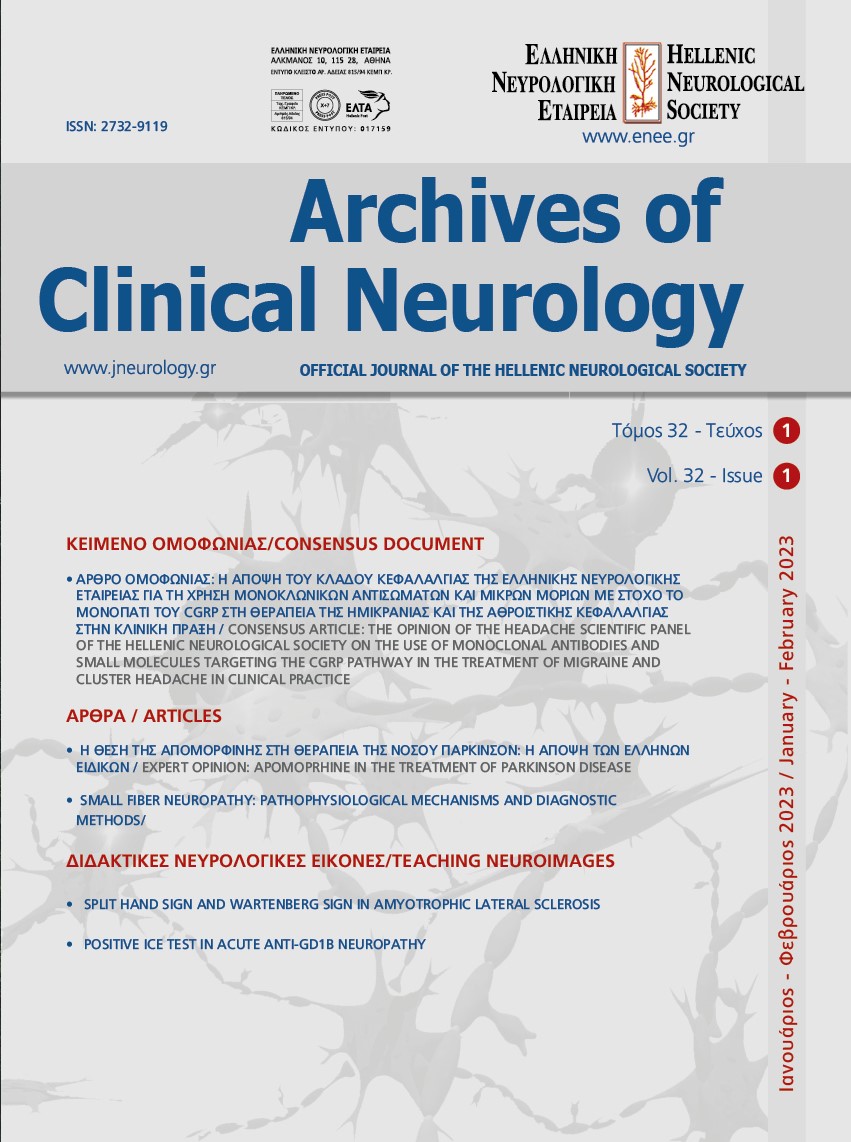Consensus Article: The opinion of the Headache Scientific Panel of the Hellenic Neurological Society on the use of monoclonal antibodies and small molecules targeting the CGRP pathway in the treatment of migraine and cluster headache in clinical practice
Keywords:
migraine, prophylactic therapy, migraine attack treatment, CGRP, monoclonal antibodies, erenumab, fremanezumab , galcanezumab, eptinezumab, rimegepant, atogepantAbstract
Novel anti-migraine therapies act by antagonism of CGRP (calcitonine gene -related peptide) or its receptor (CGRPr). Currently, four monoclonal antibodies targeting CGRP/CGRPr have been approved for migraine prophylaxis in the European Union. Their core indication refers to the preventive treatment of migraine in patients with 4 or more monthly migraine days. Three of them are commercially available in Greece and are reimbursed by the National Agency for the Provision of Health Services, provided that certain clinical conditions are fulfilled. In addition, a small molecule targeting the CGRP receptor has been approved in both the preventive and the acute treatment of migraine and is expected to be commercially available in Greece in the first quarter of 2023. The Headache Scientific Panel of the Hellenic Neurological Association, following a previous article and in order to further facilitate the smooth integration of these new drugs into the clinical practice of Greek neurologists, decided to create this consensus article, following an independent evaluation of data from official approval and post-authorization studies, guiding recommendations from international scientific companies, as well as the current real life practice of neurologists in Greece. The first part of the article briefly describes the clinical data on the efficacy/safety of monoclonal antibodies and small molecules against CGRP/CGRPr, while the second provides concensus recommendations, based on clinical criteria, as to the decisions to initiate, evaluate and discontinue these treatments. The current recommendations should be reassessed no more than 3 years after their present revision.


